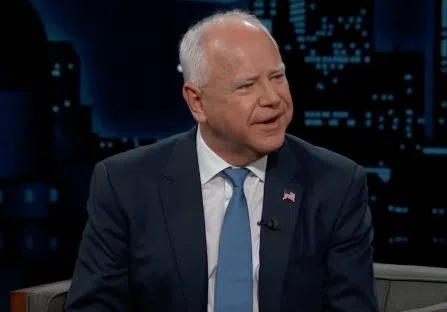
ST. PAUL, Minn. (KFGO/WCCO) – Minnesota Gov. Tim Walz signed an executive order on Friday establishing a centralized state agency to detect fraud and financial crimes.
The order comes in the wake of the Feeding Our Future COVID-era fraud scandal, and the recent federal raids on two Minnesota autism centers suspected of stealing funds meant to help children.
Superintendent of the Minnesota Bureau of Criminal Apprehension Drew Evans says fraud and financial crimes like these harm every Minnesotan.
“They drive prices up in need of products, they steal our tax dollars, they reduce the availability of funding for needed services, cause increases to our insurance rates,” Evans says.
Walz added he’s asking state government employees who work in these areas to be more skeptical going forward.
“So I think it’s probably a culture of generosity,” Walz says. “I think it’s a culture of being a little too trusting on this, and I don’t think those are bad character traits, but I don’t think they’re necessarily as effective in a time where we’re seeing fraud increase.”
The plan also increases penalties for those convicted of fraud and financial crimes in the state.
Senate Minority Leader Mark Johnson (R- East Grand Forks) released a statement in response Friday.
“Minnesotans are rightfully outraged by the sheer amount and frequent reports of fraudulent use of their tax dollars,” Johnson says. “The executive action taken today by Governor Walz is too little and too late. It remains to be seen if Walz can accept recommendations by the Office of the Legislative Auditor, hold his commissioners accountable, enforce the current laws and roles to combat fraud, or work with Republicans to pass and approve legislation that will need bipartisan support to pass. That’s the true test of whether Walz and Democrats are going to take fraud prevention efforts seriously.”
In December following the news of the FBI raids at autism centers in Minneapolis and St. Cloud, an investigation that was triggered by information gathered in the Feeding Our Future case, several state lawmakers proposed the creation of a new watchdog in the state with an Office of the Inspector General.
That would need legislative approval and would stand separately from the governor’s executive order.




Comments